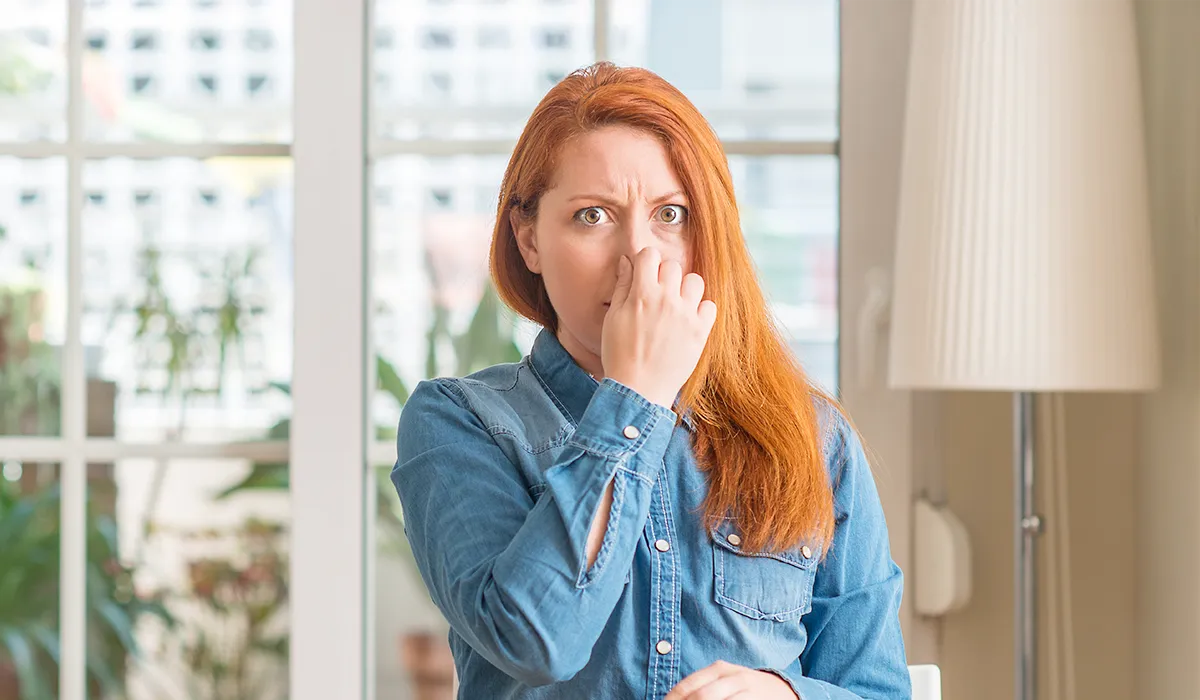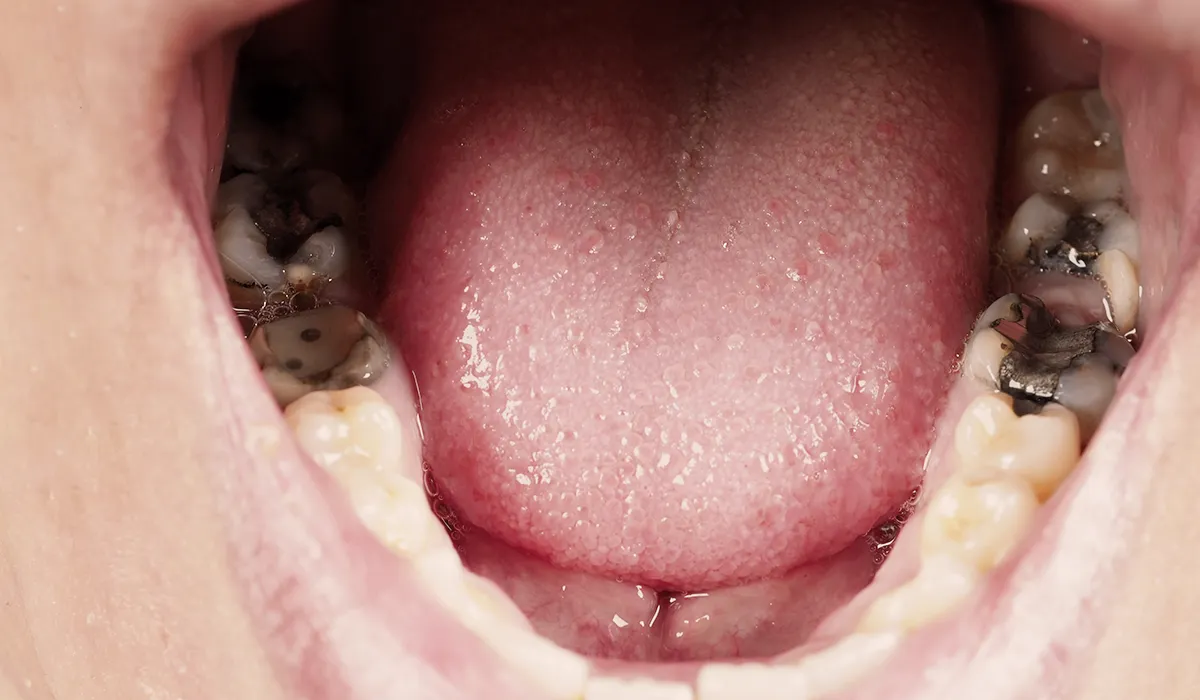We all know the feeling. You wake up, stretch, and as soon as you open your mouth, there it is. Morning breath. It’s an almost universal human experience and, for most people, nothing more than a mild inconvenience easily fixed with a good brush and rinse.
But what happens when it’s not just in the morning? What if bad breath starts hanging around longer than it should, or gets noticeably worse? Could your breath be trying to tell you something about your health?
We will help you understand the difference between normal morning breath and more serious, persistent bad breath. We’ll explore causes, symptoms, prevention, and when it’s time to seek professional help.
What is normal morning breath?
Morning breath—officially known as morning halitosis—is caused by a natural process that happens while you sleep. At night, your body produces less saliva. Without this constant flow of moisture washing away bacteria and food debris, bacteria flourish, feeding on leftover particles and releasing volatile sulphur compounds. These are the culprits behind that unpleasant morning odour.

Signs it’s normal:
✔ Only happens after waking up
✔ Easily goes away after brushing and rinsin
✔ Doesn’t return throughout the day
If this sounds like your situation, congratulations—your mouth is perfectly normal.
Morning breath might be a warning sign
Not all bad breath is created equal. Persistent bad breath, known as chronic halitosis, isn’t something you should ignore. It can signal deeper oral health problems—or even issues elsewhere in your body.
Signs your bad breath isn’t normal:
✘ It lasts throughout the day.
✘ Brushing, flossing, and mouthwash don’t help.
✘ People around you notice it—even when you can’t.
✘ You experience a dry, sticky feeling in your mouth frequently.
✘ You have bleeding gums, a metallic taste, or loose teeth.
What might be behind persistent bad breath?
Inconsistent brushing and flossing allow food particles to linger between teeth, on the tongue, and along the gumline. Bacteria feed on these, producing odour.
Inconsistent brushing and flossing allow food particles to linger between teeth, on the tongue, and along the gumline. Bacteria feed on these, producing odour.
Gum infections harbour bacteria deep below the gumline, leading to persistent foul odours. Gum disease can develop silently, so bad breath may be one of the first noticeable symptoms.
Cavities, abscesses, cracked teeth, or poorly-fitted dental work can trap bacteria, causing persistent, often foul-smelling breath.

Small, hardened deposits at the back of your throat can smell awful. These stones trap bacteria and food debris, leading to chronic halitosis.
Small, hardened deposits at the back of your throat can smell awful. These stones trap bacteria and food debris, leading to chronic halitosis.
- Sinus infections: Post-nasal drip can cause bad breath.
- Acid reflux (GERD): Stomach acids reaching the mouth can smell unpleasant.
- Diabetes: Uncontrolled diabetes can create a distinct fruity or acetone-like odour.
- Liver or kidney disease: These may cause unusual, persistent odours in the breath.
When should you see a professional?
If you notice any of the following, it’s time to book an appointment with your dentist (or your GP, if advised):
- Bad breath persists despite good oral care habits.
- Gums are bleeding, inflamed, or receding.
- You have dry mouth issues.
- A metallic taste or unpleasant taste won’t go away.
- You suspect an infection, decay, or have chronic sinus issues.
A dental professional can thoroughly assess whether your bad breath is dental-related or if you should see a medical specialist.
How to prevent morning breath from becoming chronic
- Brush twice a day for two minutes each time, using fluoride toothpaste.
- Floss daily to remove trapped food and plaque.
- Gently clean your tongue with a tongue scraper to remove odour-causing bacteria.
- Consider a dentist-prescribed antibacterial rinse as an added measure.
Drink water throughout the day to maintain saliva flow. Avoid excessive caffeine, alcohol, and smoking—all of which dry out your mouth.
Cut back on sugary foods and drinks. They feed bacteria and contribute to decay and odour. Choose foods that stimulate saliva, like crunchy fruits and vegetables.
Cigarette smoking not only causes bad breath, it also damages gums, stains teeth, and increases your risk of oral cancers.
Swap it out every 3–4 months, or sooner if bristles are frayed.
Routine checkups and cleanings catch problems early and help keep your mouth healthy and odour-free.
What treatments are available for chronic bad breath?
- Scale and clean: Removes plaque, tartar, and bacteria that contribute to odour.
- Periodontal treatment: For gum infections or disease.
- Restorative work: Fillings, crowns, or root canal therapy to address decay and infection.

Your dentist may recommend saliva substitutes or treatments designed to combat dry mouth.
Manual removal or minor procedures can eliminate these persistent odour sources.
If the cause lies outside the mouth, your dentist may refer you to your GP for appropriate testing and care.
Fresh breath starts with healthy habits
Morning breath is normal. Chronic bad breath isn’t. If your breath persists in smelling less than fresh, don’t ignore it—your body may be telling you something important.
You can usually keep your breath fresh with these simple steps:
✔ Brush and floss consistently
✔ Hydrate
✔ Eat healthy
✔ Quit smoking
✔ Visit your dentist regularl
Routine dental checkups do more than keep your teeth clean—they safeguard your overall oral health and help you address potential problems before they get worse. With the right care, you can confidently greet the day (and everyone in it) with a healthy smile and fresh breath.
Your smile speaks louder than words—make sure it’s saying the right thing.



